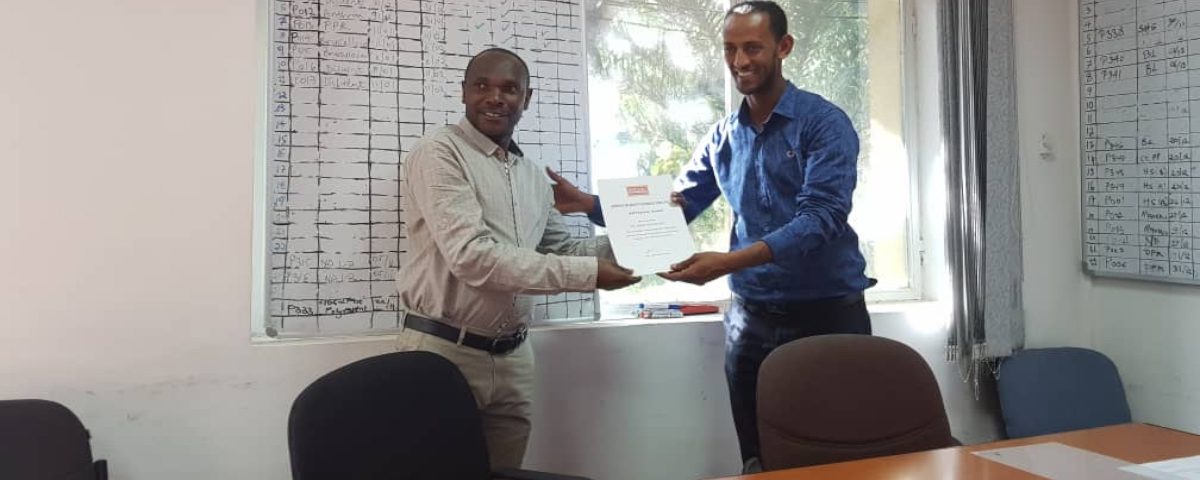One of the important Core Values upheld at AU- PANVAC as an organisation is the continuous capacity building of staff personnel through trainings, workshops and seminars among others. It is in this regard that Eight AU-PANVAC Staff, were trained on the new version of the ISO/IEC 17025 standard, ISO/IEC 17025: 2017 from 15thto 17thJanuary 2019 by the African Quality Control Consulting PLC at AU-PANVAC, in Debre-Zeit.
AU-PANVAC is already accredited for ISO/IEC 17025:2005 by ENAO Ethiopia in November 2018 for five laboratory tests with the scope of the accreditation being “Provision of Quality Control Service for PPR Vaccine and the tests specifically includes; Peste des Petits Ruminants (PPR) Identity test by Reverse Transcriptase Polymerase Chain Reaction (RT-PCR), PPR Potency test by Cell culture technique, Freedom from mycoplasma contamination by classical PCR, Freedom from Bovine Viral Disease (BVD) contamination by Real Time PCR, and freedom from bacteria/fungi contamination by media culture technique”.
The existing ISO/IEC 17025:2005, was revised in 2017 to reflect the latest changes in the market conditions and laboratory technology trends. It also takes into consideration the latest version of ISO 9001, ISO 9001: 2015, on quality management. It is worth noting that AU-PANVAC is also Certified for ISO 9001: 2015 for Vaccine Quality Control. This training on ISO/IEC 17025:2017 is therefore aimed at familiarising and improving the staff capacity on the new version in order to create a smooth transition from the old to the new; since AU-PANVAC is required to update its accreditation to the new version by the end of 2019.
The ISO/IEC 17025 accreditation is the most important standard for calibration and testing in laboratories worldwide. For any laboratory to be ISO/IEC 17025 accredited it must demonstrate technical proficiency in producing precise, accurate tests and calibration results. Even though this is a voluntary, third party-reviewed process which ensures that a laboratory’s quality management system is thoroughly evaluated on a regular basis to guarantee continued technical competence, it is a requirement and mandatory for any laboratory wishing to maintain compliance with International standards.







